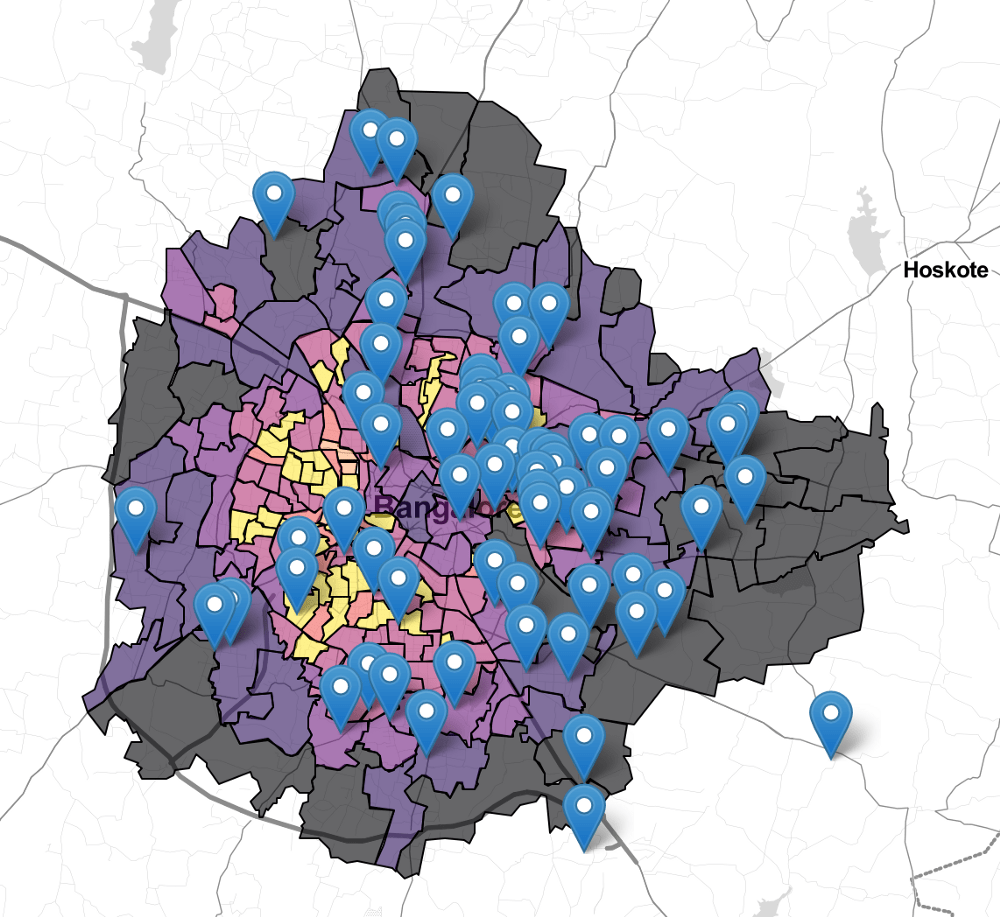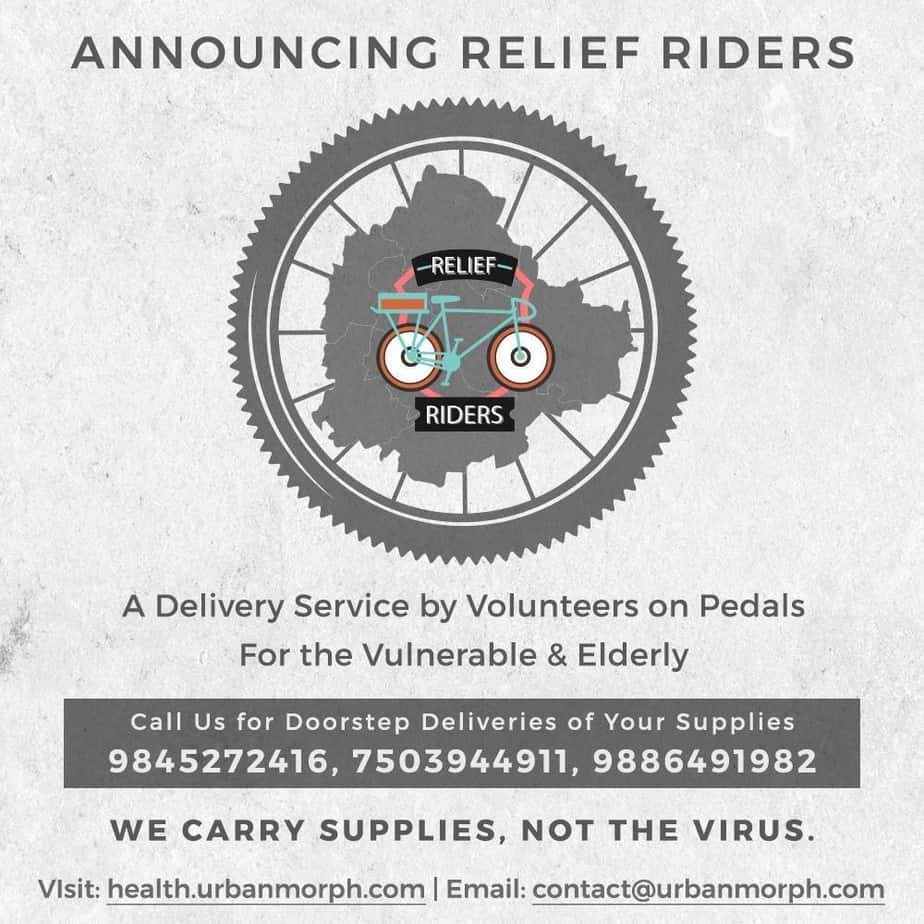In this series, individuals, citizen groups and RWAs explain how they have dealt with the COVID-19 crisis in a constructive manner. In the fifth part of the series, the Bicycle Mayor of Bengaluru describes the measures he took.
I was selected as the first Bicycle Mayor of Bengaluru in May 2018 by BYCS, an Amsterdam-based NGO. I’m one of more than 100 Bicycle Mayors across the globe who are trying to shift transportation in cities to the bicycle. The #CycleToWork campaign I launched in September 2018, has catalysed work commute by cycle; and its online platform has attracted more than 270 companies, clocking over 75,000 trips.
Bicycle Ambassadors have been nominated in each company, to scale up cycle commute at the company level. It is these ambassadors who have come in handy during the COVID-19 lockdown from March 24 to May 3.
The lockdown has been particularly hard on the elderly and others with non-COVID medical conditions, who find it difficult to manage their daily needs and procure essentials. Senior citizens are highly vulnerable to the virus as well. So I asked the cyclists working from home if they would like to ferry, on their cycles, essential supplies like medicines and groceries to senior citizens in the city.
The very first list of volunteers comprised just 22 people, mostly from the #CycleToWork platform. After one week, 66 volunteers were on a WhatsApp group, looking out for requests to run sorties to help the vulnerable. More cyclists volunteered to join the team once word spread from the cycling ambassadors to other recreational cyclists and local bike stores.
I conduct a 15-minute orientation programme over the phone before onboarding each person, to ensure everyone understands the rules and operates in sync, given the absence of formal structures. The volunteers report on the group the sorties they perform every day, and motivate others.

Relief Riders are a completely decentralised bunch of volunteer cyclists, which means passes are not really required as they don’t travel far for deliveries. We have tied up with the Bengaluru Police’s 1090 Elders Helpline, which routes some of their requests to us. Conversations are also on with the Department of Information and Public Relations (DIPR) to see if the maps, data and workload can be shared.
The tag line of the group is
“We carry supplies, not the virus.”
Safety isn’t an afterthought. Emphasising this in the tagline establishes trust and ensures we abide by it. Each volunteer is told to wear a mask, carry sanitisers and to clean hands, to keep a distance from the senior citizen and ensure we are not transmitting the virus. This has been successful so far.
Technology has been an enabler in quickly getting started. In the WhatsApp group, volunteers cheer each other on with pictures and status updates. After each sortie, the volunteer fills a Google sheet with the details of the trip. Some even clock it on a tracking application called Strava and tag it with #ReliefRide for further analysis. This allowed the team to figure out, after the first week, that the volunteers had covered 27 of the 198 wards across the city.
Besides delivering essentials, volunteers took up other tasks. Three of them volunteered to channelise calls so that technologically-challenged elders don’t have to wade through websites for numbers. Another volunteer who runs a digital marketing agency helped make a poster with these numbers, to be circulated across the internet.
Yet another volunteer, a data scientist, along with his colleagues, offered to map senior citizens in every ward so we could target our efforts better. An urban planner helped stitch all these together from the start to the execution. Find more on the initiative at health.urbanmorph.com
The list of volunteers and wards served is growing every day, and deliveries are being made without any carbon emission.

Relief Riders have proved, during this crisis, that there is definitely someplace good that the bicycle can take us. The world’s cities just need to give the bicycle a chance to be their knight in shining armour.